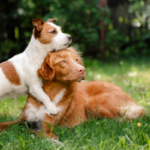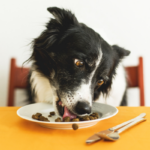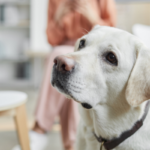What is Parvovirus? Parvovirus is a highly contagious viral infection affecting dogs. It has two strains, but the most common strain seen in veterinary practice is that of the intestinal strain. There is also a cardiac strain which attacks the heart muscles of fetuses and young puppies.
What are the symptoms? Parvovirus presents in puppies, geriatric dogs or unvaccinated dogs initially as vomiting, severe lethargy, diarrhoea, inappetence, nausea and weight loss. As the virus progresses each of these symptoms becomes more ferocious with blood often becoming present in the diarrhoea and vomit of the patient. The virus is aggressive and does have a high fatality rate in any canine that is unvaccinated – puppy, adult or geriatric.
How can you help prevent your dog from this potentially fatal virus? Here is what we recommend;
Vaccinate! When purchasing or adopting a new puppy ensure that you are provided with a copy of the puppy’s vaccination records to show that they have in fact had their first puppy vaccination (this should be done between 6-8weeks of age). This initial vaccination is called a C3 vaccination and begins the coverage for your puppy against Parvovirus, Distemper and Hepatitis. At your puppy’s second vaccination they receive a booster for Parvovirus, Distemper and Hepatitis as well as protection against respiratory infections such as Bordetella Bronchiseptica and Parainfluenza (commonly known as ‘Canine Cough’).
Breeder Research! Make sure that who/where you are purchasing or adopting the puppy from is reputable, have all their dogs vaccinated and can provide you with your puppy’s full vaccination history/information. Don’t be afraid to ask questions of the breeder/adoption group to ensure that they have given the puppy their first vaccination to begin the immune support against Parvovirus, Distemper and Hepatitis.
Exposure! Ensure they do not meet any other dogs that are unvaccinated or environments that an unvaccinated dog may have been until your puppy has had their second vaccination and if a required a third vaccination. Also remember that the vaccination takes time to interact with the immune system (this usually takes approximately ten to fourteen days) so you must wait for this extra time also.





